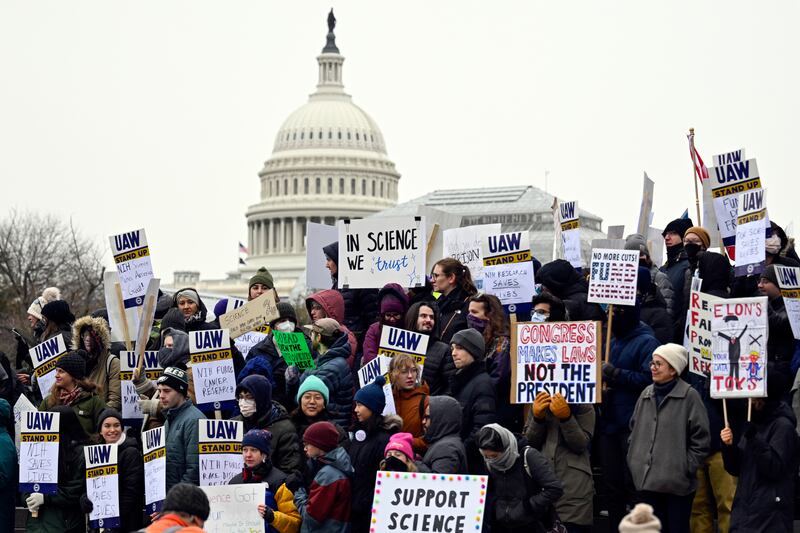The Supreme Court issued a ruling Thursday allowing the administration to cut nearly $800 million in National Institute of Health grants related to diversity, equity and inclusion initiatives.
The 5-4 ruling was a win for the Trump administration, which took the issue to the highest court after a lower court judge in Massachusetts required the federal government to continue making the payments. The plaintiffs in the case included a coalition of 16 Democratic state attorneys general and public health advocacy groups, who argued the Trump administration was being discriminatory.
Since Trump took office the decision noted that federal institutions like the NIH — the largest public funding source for biomedical research in the world — have been making policy changes to better align with the current White House’s politics.
Trump has pushed executive orders to roll back Biden administration policies that were created with the purpose of “advancing racial equality.” As soon as he took office last January, Trump took action to end what he called “radical” DEI completely, labeling it as demonstrating “immense public waste and shameful discrimination.”

From now on, the NIH will no longer be funding research related to “DEI objectives, gender identity, or COVID–19," per the ruling, “Nor will it continue the practice of awarding grants to researchers based on race.”
Also in the 5-4 ruling was the decision to leave in place a separate portion of the lower court judge’s ruling with removed NIH guidance documents that describe the agency’s policy priorities.

Justice Amy Coney Barrett was the deciding vote on each issue.
She joined conservative Justices Clarence Thomas, Samuel Alito, Neil Gorsuch and Brett Kavanaugh in terminating the initiative grants, but joined Chief Justice John Roberts and the court’s liberal justices Sonia Sotomayor, Elena Kagan and Ketanji Brown Jackson in voting to leave the lower court’s ruling on the guidance documents in place.
Gorsuch, joined by Kavanaugh, wrote an opinion calling out lower court judges for defying Supreme Court precedent.
“Lower court judges may sometimes disagree with this Court’s decisions, but they are never free to defy them,” he wrote.
Last April, the Supreme Court granted the Trump administration permission to cut teacher training grants involving DEI practices. “Rather than follow that direction, the district court in this case permitted a suit involving materially identical grants to proceed to final judgment,” Gorsuch wrote.
“If nothing else, the promise of our legal system that like cases are treated alike means that a lower court ought not invoke the ‘persuasive authority’ of a dissent or a repudiated court of appeals decision to reach a different conclusion on an equivalent record,”


